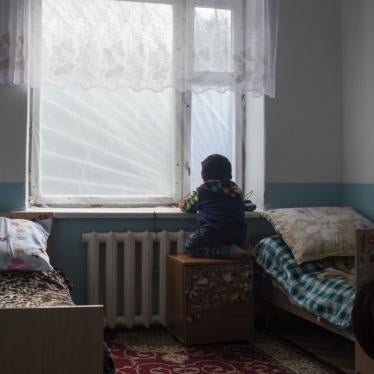One of the two key ‘chapters' of negotiations that Croatia must close before it can join the EU is, as you have written, the chapter on the judiciary and fundamental rights ("Approaching the finishing line", 4-10 November).
Croatia has improved its human-rights record in recent years, and it deserves credit for that. But this year, and every year since 2007, the EU's annual progress report was critical of Croatia's progress on the ‘deinstitutionalisation' of people with intellectual disabilities (also called learning or cognitive disabilities) or mental disabilities (sometimes called psychosocial disabilities or mental-health difficulties).
The UN Human Rights Council this month also questioned Croatia about the lack of progress on fulfilling the right of these individuals to live in the community.
Experience has shown that even those with the most severe disabilities can live better-quality lives if they live in the community, in housing with support services.
While in Croatia last year, I met Goran, a 30-year-old man with a moderate intellectual disability. He was placed in an institution as a baby. He does not know his family, and he has never attended a school or held a job. Nor has he ever decided for himself when to take a bath or what to eat for breakfast, and he shares his bedroom with up to 12 other people.
I also met Milica, a woman who, with help from a community-based support programme, lives in an apartment in Zagreb. She shops, cooks, pays her bills, and has an active social life (indeed, she recently married). Milica lived in an institution for more than 20 years, but today she lives like everyone else.
In Croatia, Milica is the exception, while Goran is the rule. More than 9,000 people with intellectual or mental disabilities still live in institutions in Croatia, a number that is increasing. This means that more than one Croat in every 500 lives in an institution, without autonomy, privacy and the opportunity to live a full and productive life.
Croatia made a commitment to the EU in 2006 to deinstitutionalise people with disabilities. It has, however, yet to take even the first step - adopting a plan.
On the level of commitments, Croatia is in some respects ahead of the EU - unlike the EU, it is already a party to the UN Convention on the Rights of Persons with Disabilities (indeed, it was one of its first signatories) - and the EU's member states themselves all too often fail to follow up rhetoric with action.
But the ongoing accession process with Croatia gives the EU a special opportunity to demand action. In doing so, the EU might also ensure that, when it becomes a member state, Croatia can claim with some justice to be a model to others in the EU.






